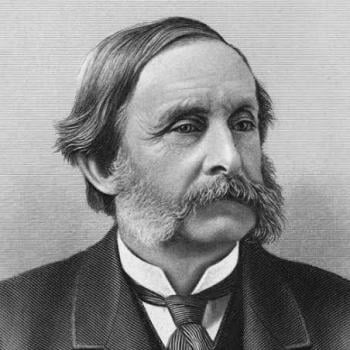Now Featured in the Patheos Book Club
Follow Me
A Call to Die. A Call to Live.
By David Platt
David, your best-selling book, Radical, addressed those things that we must let go of to follow Christ. How does Follow Me extend this conversation?
In RadicalI sought to expose values and ideas that are common in our culture (and in the church) but that are antithetical to the gospel. My aim was to consider what in this world that we need to let go of in order to follow Jesus. The purpose of Follow Me is to take the next step. I want to move from what we let go of to whom we hold on to. I want to explore not just the gravity of what we forsake in this world, but also the greatness of the one we follow in this world. I want to expose what it means to die to ourselves and to live in Christ.
What is the biggest concern you have today about the evangelical church in America?
I believe that multitudes of people, here and around the world, culturally identify themselves as Christians who biblically are not followers of Christ. Amidst varying cultural tides and popular church trends, we in the church have subtly minimized the magnitude of what it means to follow Him. We've taken challenging words from Christ and turned them into trite phrases in the church. In the process, we've drained the lifeblood out of Christianity and replaced it with a watered-down version of the gospel that is so palatable it's not even real anymore. In the end, I'm convinced that we desperately need to look at our lives and our churches and ask the question, "Are we really following Jesus? And what does that biblically mean?"
In your book, you raise concerns over churches instructing people to pray the sinner's prayer. Why is this a concern in your eyes?
The concern is not specifically with people calling out to the Lord in prayer in order to be saved; that's biblical (Rom 10:9-13). The problem comes when we equate conversion with simply saying certain words or even assenting to certain truths, things that can happen completely apart from heart change and without considering the cost of following Jesus. Becoming a follower of Jesus is not a formulaic ritual as much as it is a life transformation. So my concern is that we share the gospel clearly and completely, and then call people to respond biblically: to repent (to turn from our sin and ourselves) and to believe (to trust in Jesus as Savior and Lord).
In Follow Me, you say that "Christianity is radically different than every other religion in the world. Yet in so many ways and in so many settings, we have relegated Christianity to just another choice in the cafeteria line of world religions." Can you explain what you mean by this statement?
We often let Christianity devolve into just another set of rules, regulations, practices, and principles to observe. In the process, we lose sight of the wonder and significance of what is distinct about a personal relationship with Jesus. When Jesus came on the scene in human history and began calling followers to himself, he didn't say, "Follow certain rules. Observe specific regulations. Perform ritual duties. Pursue a particular path." Instead, he said, "Follow me." And in this way, Jesus made clear that his primary purpose was not to instruct his disciples in a prescribed religion; his primary purpose was to invite his disciples into a personal relationship. So the Christian is not called to simply to believe certain truths or observe certain practices, but ultimately to cling to the person of Christ as life itself.
One of the things you discuss in the book is that we shouldn't make Jesus our personal Lord and Savior. And yet, isn't this what we regularly hear is necessary for salvation?
In addressing this phrase, I'm wanting to point out two realities. First, we don't make Jesus Lord; Jesus is Lord over all creation (and over our lives) regardless of what we decide. The question is whether or not we will submit to His lordship now or when it's too late. Second, I'm concerned that many times this phrase fosters a customized approach to Christianity that revolves around a personal Christ that we create for ourselves. We start to pick and choose what we like and what we don't like from Jesus' teachings. But Jesus is simply not customizable in this way. We don't personalize Him; He revolutionizes us. And when He does, we realize that Jesus is not just a personal Lord and Savior who is worthy of our individual approval. Instead, He's the cosmic Lord and Savior who is worthy of everyone's eternal praise.
How do you hope Follow Me will impact the future of the church in America?
My prayer is that people who read the book will have a better understanding of what it means to follow Jesus. My prayer is that people will see that following Jesus costs you everything you are and everything you have. And my prayer is that people will see that Jesus is worth it. In the process, I hope that Christians who read this book will find themselves compelled to eagerly, willingly, and gladly give—even lose—their lives to proclaim Christ in the world, because that's simply what it means to follow Him in the first place.
2/1/2013 5:00:00 AM




